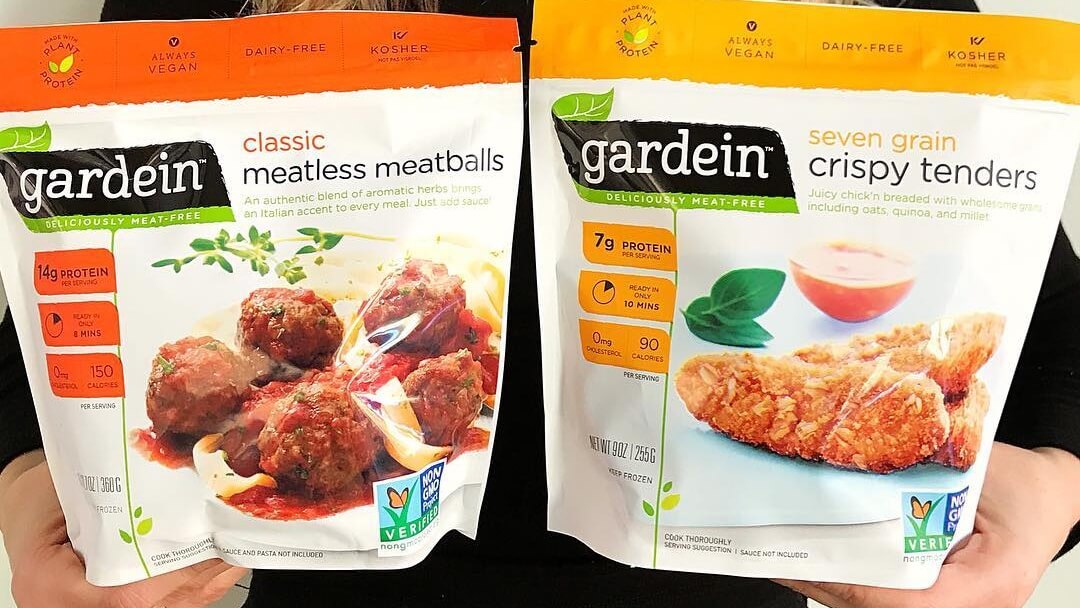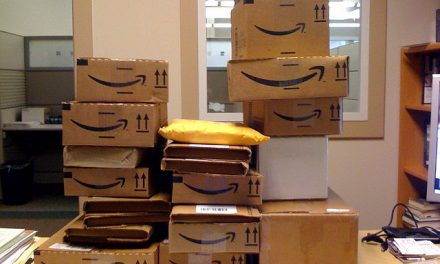Written by Charlotte Pointing/ LiveKindly
From “bleeding” burgers to macaroni cheese to sausage rolls, everywhere you look right now, all of these items — previously laden with animal products — seem to have the word “vegan” in front of them.
If you walk into a restaurant, it’s more possible than ever before that you’ll see items clearly marked with “ve;” and on your weekly shop, you’re likely to see several products marketed as plant-based or dairy-free.
If you asked for vegan food 20, 10, or even five years ago, you’d be met with surprise or even an eye-roll. Vegans were once stereotypically thought of as hippies, pictured sitting around eating nothing but lettuce in flower crowns. Fast forward to 2019, and times have changed. Times have really, really changed.
Ask for the vegan menu these days and it’s quite plausible your server will eagerly hand you a card packed with veggie burgers, dairy-free pasta, quinoa bowls, and if you’re lucky, some vegan dessert too. But why the sudden shift toward meat-free and plant-based foods? Has everyone become suddenly radical in their views? The likeliest answer to that is no, but they have become more open to change.
The Rise Of Flexitarianism
To follow a flexitarian lifestyle means to reduce — but not completely eliminate — your intake of animal products. Instead of the traditional meat and two veg, nowadays, more people are opting for plant-based foods on weeknights and saving the meaty dishes for the weekend.
In Australia and New Zealand, flexitarian lifestyles are continuously rising in popularity, driven by more choice of vegan restaurants than ever before. In the UK, a recent study by supermarket chain Sainsbury’s revealed that 91 percent of Brits now identify as flexitarian.
“We’re seeing increasing demand for plant-based products,” said Rosie Bambaji, a plant-based buyer at Sainsbury’s. “With the unstoppable rise of ‘flexitarianism’ in the UK, we are exploring further ways to make popular meat-free options more accessible.”
Innovation In Vegan Food
One of the reasons more and more people are reducing their intake of animal products is because the range of alternatives on offer is significantly larger — and more appealing — than it has ever has been before.
It’s not just all about tofu and broccoli any more (although these foods, of course, have their place). We now have an ever-growing range of vegan “bleeding” burger options — looking at you Beyond Meat, Impossible Foods, Quorn, and Moving Mountains. Made from ingredients such as soy, pea, or mycoprotein, they’re the closest to the real thing we’ve ever had; each with a strikingly similar appearance, taste, and texture to traditional beef burgers.
Pubs up and down the UK feature the Moving Mountains B12 Burger and the Beyond Burger, and Burger King was so impressed with Impossible Foods’ Impossible Burger it added it to the menu in the form of an Impossible Whopper, which is set to roll out across the U.S. later this year.
But innovation isn’t just limited to burgers. Quorn recently took the UK by storm with its vegan sausage roll filling for bakery chain Greggs; the pastry became the chain’s best-selling new menu item, helping to push sales above £1 billion.
Every day there is seemingly more on offer; from JUST vegan eggs, to creamy vegan Oatly milk, to Sophie’s Kitchen fish-free salmon and prawns. Thanks to Quorn and Gardein, realistic vegan chicken products line supermarket shelves and many consumers are unable to tell the difference between a real chicken nugget and a plant-based one.
Why Is Demand For Vegan Food Growing?
Aside from innovation, another fundamental reason behind the growth of the vegan food market is rising consumer awareness of the health consequences of eating animal products, as well as the ethical and environmental impact of animal agriculture.
Vegan For Health
According to a study from earlier this year, nearly 114 million Americans are intending to eat more vegan food for health reasons. Research has linked the consumption of animal products with serious health conditions, including diabetes, heart disease, and cancer.
Eating three rashers of bacon a week could increase your risk of developing bowel cancer by 20 percent, according to one study. And consuming red meat, in general, could increase the risk of heart disease up to 1000 percent more than consuming solely plant-based foods.
Dairy has also been named as a carcinogen by some medical experts, including Kristi Funk, a Beverly Hills breast surgeon. Funk has treated a number of high profile patients, including Angelina Jolie, Sheryl Crow, and Ellen Pompeo.
“When I delved into the literature regarding food, I was literally shocked,” she told the Sunday Times last year. “It is crystal clear that the body’s cellular response to animal protein and fat is nothing but dangerous.”
And as for those who claim that “everything is ok in moderation, including meat,” Funk has a clear warning. “Why consume cancer-causing meats in moderation?” she asked. “So that maybe I can remove a moderate part of your breast?”
On the flip side, research has shown that plant-based foods fight and protect against cancer and other serious diseases.
According to the American College of Lifestyle Medicine, following a plant-based diet after a type 2 diabetes diagnosis could even reverse the condition. Brooklyn Borough President Eric Adams is walking proof; the politician was losing his eyesight and had severe nerve damage in both his hands and feet. Three months after following a plant-based diet, Adams’ type 2 diabetes — a condition that runs in his family — was reversed.
He told Everyday Health, “imagine the excitement I have in watching my mother, who has been injecting herself [with insulin] since I was 2 years old, now hear me tell her that she can reverse her condition. I can’t even express the emotions that are attached to that.”
Vegan For The Planet
It’s not only their own health that is motivating consumers to ditch animal products, but the health of the planet too. People are becoming more and more aware of the impact that animal agriculture has on the environment.
A major United Nations report revealed last year that we have 12 years to prevent a climate change crisis. Around the same time, the global organization’s Environment Programme (UNEP) named tackling meat production and consumption as the “world’s most urgent problem.”
“Our use of animals as a food-production technology has brought us to the verge of catastrophe,” the UNEP said in a statement. “The greenhouse gas footprint of animal agriculture rivals that of every car, truck, bus, ship, airplane, and rocket ship combined. There is no pathway to achieve the Paris climate objectives without a massive decrease in the scale of animal agriculture.”
It isn’t alone in reaching this conclusion. Last summer, the world’s biggest-ever food production analysis announced that following a vegan diet is “the single biggest way“ an individual can reduce their impact on the planet.
Lead researcher of the Oxford University study Joseph Poore said at the time, “it is far bigger than cutting down on your flights or buying an electric car. Agriculture is a sector that spans all the multitude of environmental problems.”
He highlighted that the industry isn’t just responsible for high greenhouse gas emissions, but it also uses excessive amounts of land, water, and contributes to global acidification and eutrophication. “Really it is animal products that are responsible for so much of this,” he said.
It isn’t just animal products used for food that harm the planet either. Those used in the clothing industry, such as leather, fur, and wool, also have an impact.
According to animal rights organization PETA (People for the Ethical Treatment of Animals), a chrome-tanning facility for leather wastes almost 15,000 gallons of water and can produce more than 2,000 pounds of solid waste for every tonne of hide it processes. It adds that fur farms produce high amounts of ammonia into the air, and breeding sheep for their wool wastes large amounts of water and contributes to land degradation.
Vegan For The Animals
Largely thanks to documentaries — such as Dominion and Earthlings— awareness is growing around how billions of animals around the world are exploited for human gain. These films showcase the suffering that animals go through in the meat, dairy, and egg industries, but also for research, fashion, and entertainment.
Celebrities are also getting involved in raising awareness. Actor Joaquin Phoenix narrated both Dominion and Earthlings, and musician Miley Cyrus continuously speaks out against animal cruelty for food and fashion.
A recent campaign by Mercy for Animals involved a number of celebrities, including James Cromwell, Daniella Monet, and Emily Deschanel. The campaign highlighted how McDonald’s treats its chickens. They’re bred to be so large they can barely walk without being in pain and are kept in tiny cramped cages before they are turned into McNuggets.
The story is the same for many animals around the world, including cows, sheep, and pigs, but people are waking up to this reality. A study from last year revealed that seven out of ten believe that factory farming pigs is both upsetting and wrong and were particularly shocked by the use of gestation crates.
In 2018, it was revealed that the top reason people ditched meat, dairy, and eggs for Veganuary was due to animal welfare-related reasons. And the results of another study conducted in the fall showed that nearly half of all meat-eaters would rather turn vegetarian than kill an animal themselves for dinner.
More recently, in May 2019 it was reported that animal welfare concerns could impact the Australian meat industry to the tune of $3.2 billion.
“The animal rights movement is young and is only getting stronger,” said Animal Liberation Victoria in response to the data.















